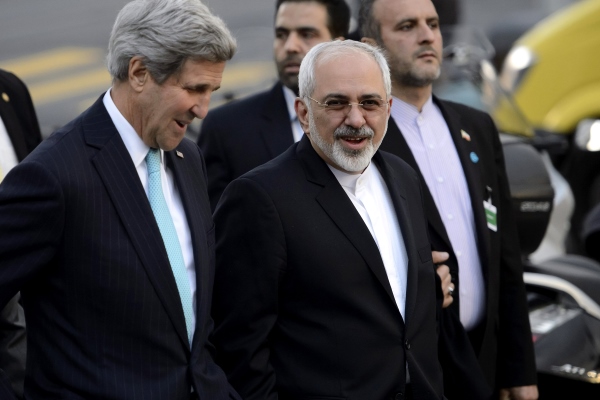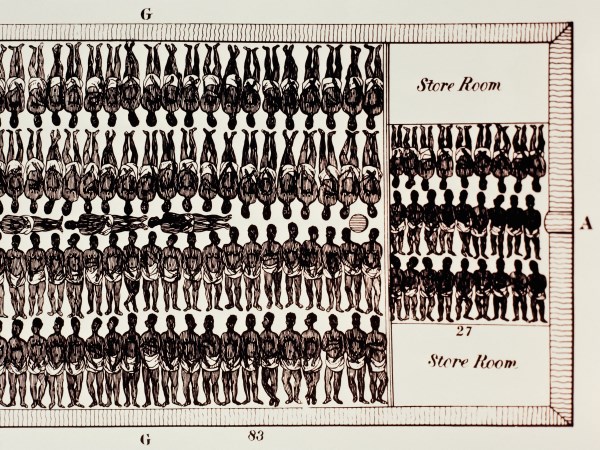So Barack Obama has got his agreement, his legacy. There will be debate and a vote (or votes) taken in the US Congress, but even if the Congress passes a resolution that disapproves the deal, and even in the unlikely event that such a resolution survives a presidential veto, the horse is out of the barn. The US is only one of the Western parties to the deal, which will likely receive the backing of a UN Security Council resolution. Who would enforce continued sanctions?
I’m not going to enumerate all the reasons this is a bad deal on a global scale (you can read about some of them here). What I wonder is why Obama and his people pushed for it. Did they think at first that they could get an agreement that would moderate Iran’s behavior and hold back their nuclear project, and then found themselves suckered by Iran’s negotiators? Or were they going for something entirely different?
As an Israeli, I can’t see anything good in the deal, and both Israel’s government and opposition agree with me (although the opposition is somewhat comically trying to blame the Prime Minister for it). But looking at it from an American point of view, what were they thinking?
One explanation is sheer incompetence. I suppose this is possible, especially since John Kerry is involved, but it’s not terribly interesting. What other explanations are there?
Another is the one I suggested in “Breakdown and Betrayal:” they were following the Iraq Study Commission recommendations to buy the friendship of the Arab and Iranian troublemakers in the Middle East by giving them Israel. This is certainly part of it, especially for Obama, who I am convinced would like nothing better than another Arab state in the place of Israel.
But there’s one other – even worse – possibility: that the deal represents a way to cover a strategic withdrawal from the Middle East. Could it be that the administration has decided that the US can’t successfully confront Iran in any case, and the deal exists to put a pleasant face on the American surrender?
Iran has staked its claim. It wants to establish a Shiite caliphate to dominate the Middle East (and much of the world’s oil supply). It wants US influence out of the region. It wants Israel gone. Its long-term ambitions may well be much greater.
No prior administration would have accepted that. But apparently Obama and his advisors have convinced themselves that they can live with an Iranian Middle East. At least, they think, it will solve the problem of ISIS. And – very importantly – perhaps they have convinced themselves that they do not have the power to stop it.
But isn’t it true that sanctions brought Iran to the verge of capitulation? Supposedly its financial straits brought the regime to the table. All that would be needed would be to keep the pressure on.
I disagree, and I think the administration does too. What happened was that despite the sanctions, Iran managed to develop its nuclear program almost to completion. It was simply a matter of reallocating resources, and the totalitarian Iranian regime had the power to do that indefinitely, despite the pain it caused the population. What could the people do, vote for the opposition?
What brought Iran to the table was not economic pressure, but the opportunity presented by the Obama Administration, which was anxious to shed its obligations in the Middle East. The administration understood that only a credible threat of military action could stop Iran, and it was not prepared to make such a threat – because it might have to carry it out. And it was not prepared to pay the price for that.
The mighty USA, the nation with the largest GDP and military budget in the world, a nation that possesses thousands of deliverable nuclear warheads and massive conventional forces, could crush Iran in a matter of days or weeks. But the consequences would include some casualties, a huge bump in the price of oil, and terrorist attacks against American interests all over the globe, perhaps even the homeland. Don’t forget that while America is a superpower in many ways, it is a soft target. And in the field of terrorism, Iran is the superpower.
This explains why the negotiations proceeded as they did. The West wasn’t holding the high cards – the Iranians were.
Obama, who is ideologically opposed to coercion by the West in any event, simply does not see that continued US influence in the Middle East is worth the cost. So he’ll make the best of his weakness, give Iran what it wants without a struggle, and contract the sphere of influence of the US a little. So what if it means that the corrupt House of Saud goes down the drain, and the Jewish state of Israel – which he believes should never have been created in the first place – is lost as well?
One can only imagine the consequences. A newly empowered Iran would push the boundaries of its caliphate in all directions. Russia and China have spheres of influence to think about too, and would rush to fill the vacuum created by a withdrawing United States. Everyone that could get nuclear weapons, would. Muslim supremacists in Europe and elsewhere would be encouraged.
Obama could cut military budgets even further and stop droning ISIS and other terrorists – the Shiite militias will take care of that for him. He could play Cyrus to the ‘Palestinians’, bringing them ‘back’ to their ‘homeland’ at last. He could reopen the US Embassy in Teheran and build one in al-Quds, ‘Palestine’.
Yes, Barack Obama could be the third world hero that he has always envisaged himself as, revered like Martin Luther King or Nelson Mandela. Only, his importance would be even greater than theirs.
He would go down in history as the man that finally brought about the end of the Pax Americana, the twilight of the West.



